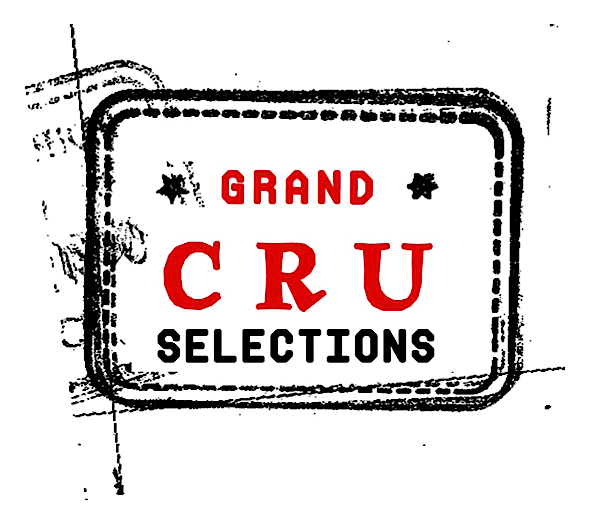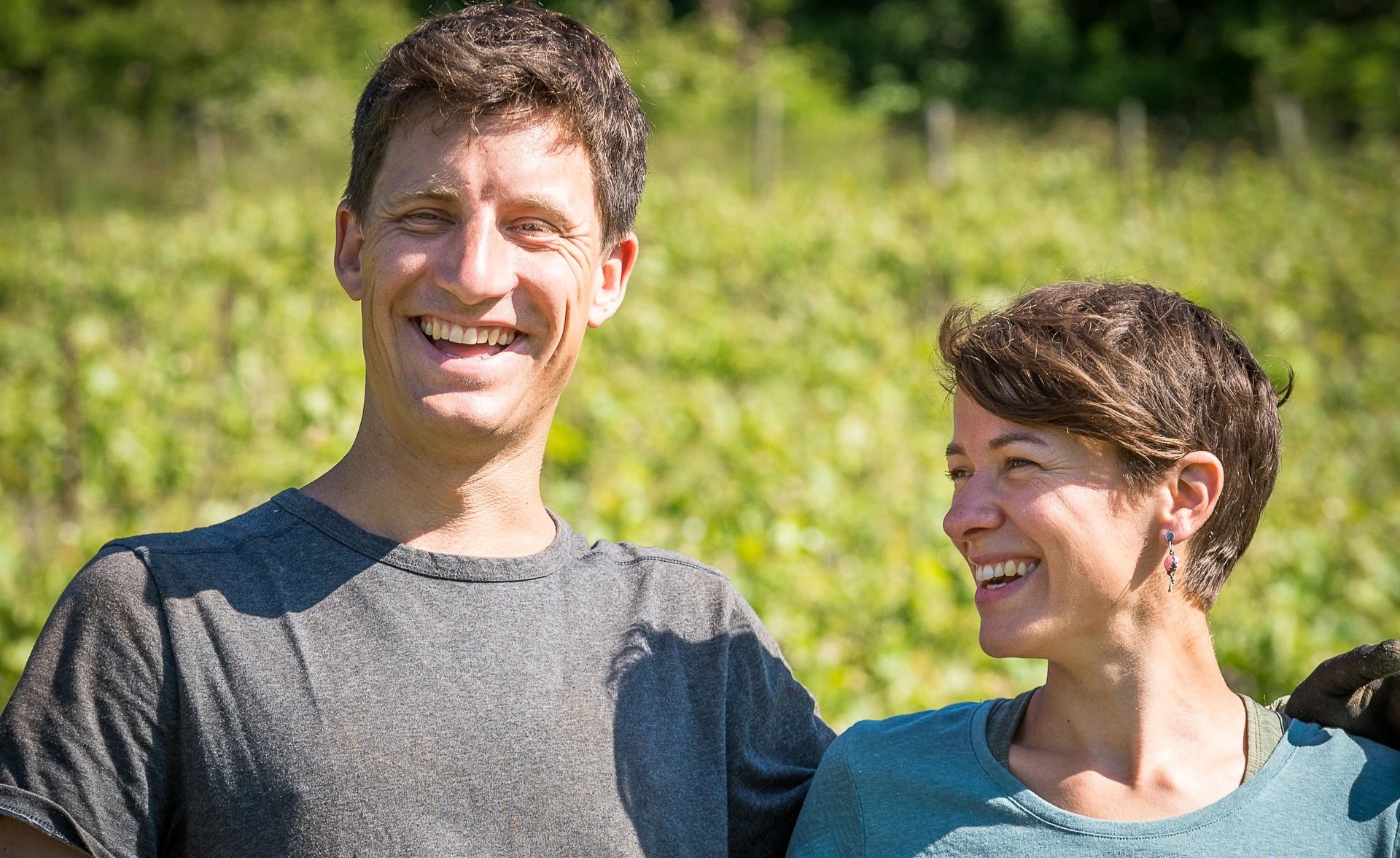Domaine des Côtes Rousses
Saint Jean de la Porte, Savoie, France
Nicolas & Marielle Ferrand
Nicolas Ferrand is a first generation winemaker who founded his domaine in 2011, naming it for the reddish alpine soils he works.
He currently farms around five hectares of vines in the village of Saint Jean de la Porte planted with Mondeuse, Altesse, and Jacquère. All of the vineyard plots are south-facing at an altitude of 350 to 580 meters. The native herbs and trees on the slopes of the Bauges mountain ranges create a sort of alpine “garrigue.”
-
The winery and cellar are at a family farm in La Motte-Servolex, using old stables that used to house Nicolas' grandparents' cattle. (The hay hatches have proven useful to working by gravity.) In the cellar, Nicolas is as non-interventionist as possible, using only natural yeasts and old barrels. When racking and bottling, he works according to the biodynamic calendar.
-
Saint-Jean de la Porte
Our southeast facing slopes benefit from a micro climate. On the sides of the Bauges mountain range, cicadas, black truffles, Montpellier maple trees, junipers, and almond trees create a sort of “Alpine garrigue”
The parcels are at between 350 and 600 meters of altitude on marl-limestone on a schist structure. From one parcel to another, the proportion of clay and limestone varies, as well as the oxidation and structure of the clay (which is mostly red). Also, the thawing of the huge glaciers 20,000 years ago left other deposits of rock that came from elsewhere - sandstone, micaschist, quartz.
-
Organic from the outset, Nicolas uses plant infusions against diseases and is incrementally switching to biodynamic farming. Certified Demeter in 2020. He believes that low yields are key for quality and keep yields that are often almost half of what the appellation authorizes. With slopes that can reach up to 45%, Nicolas Ferrand and his team do most of the vineyard work by hand and work the soil with a winch and caterpillar tractor and with a horse on the less steep plots. Pruning is an important step at this address and Nicolas takes the time to fully understand the plant and the sap flows prior to pruning the vine using the Guyot, En gobelet, or En Cordon de Royat methods. In winter, sheep roam through the vineyards, eating weeds and fertilizing as they go.
-
The winery and cellar are at a family farm in La Motte-Servolex, using old stables that used to house Nicolas' grandparents' cattle. The hay hatches have proven useful to working by gravity.
In the cellar, Nicolas is as non-interventionist as possible, using only natural yeasts and old barrels.
The red grapes go through whole bunch fermentation in concrete vats with natural yeasts and no added sulphur. Neither pumping-over nor punching down is performed. Depending on the grape varietal and the cuvee, aging is done in a mix of vessels including sandstone and terracotta amphorae, cement tanks, and foudres bought in Alsace.
The white grapes are pressed upon arrival in the cellar, after a light settling by gravity fermentation starts with natural yeasts. The wines are aged on lees in a mix of old barrels, cement tanks, foudres, and amphorae.
When racking and bottling, Nicolas works according to the biodynamic calendar.
The wines are bottled unfined and unfiltered with very little added sulphur.
Wines
La Pente Savoie Blanc
La Pente is 100% Jacquère from steep slopes on limestone based soils. Approximately half of the final blend is aged in old oak barrels with the other half aged in tank.
Altesse "Ensemble"
The Altesse Ensemble is 100% Altesse from lakeside vines in Monthoux, at 350 meters altitude on the west side of the mountains. The name is an homage to the many hands involved to launch the first vintage from only 20 rows of vines planted in 2015.
Armenaz Savoie Blanc
Armenaz is 100% Jacquère from a single high-altitude vineyard (580m) on limestone and red clay. It is aged entirely in tank and is named after the mountain where Nicolas Ferrand’s grandparents would graze their cows in the summer.
Coteaux de la Mort Mondeuse
Coming from a single parcel hillside above the village neglected for its steep slope but known for its quality Mondeuse cuvées since the Middle Ages.
Verre Tige Chignin-Bergeron
100% Roussanne (Bergeron) from only 15 rows of vines in a limestone scree under Montmelian planted in 2014. The first vintage produced is 2017.

